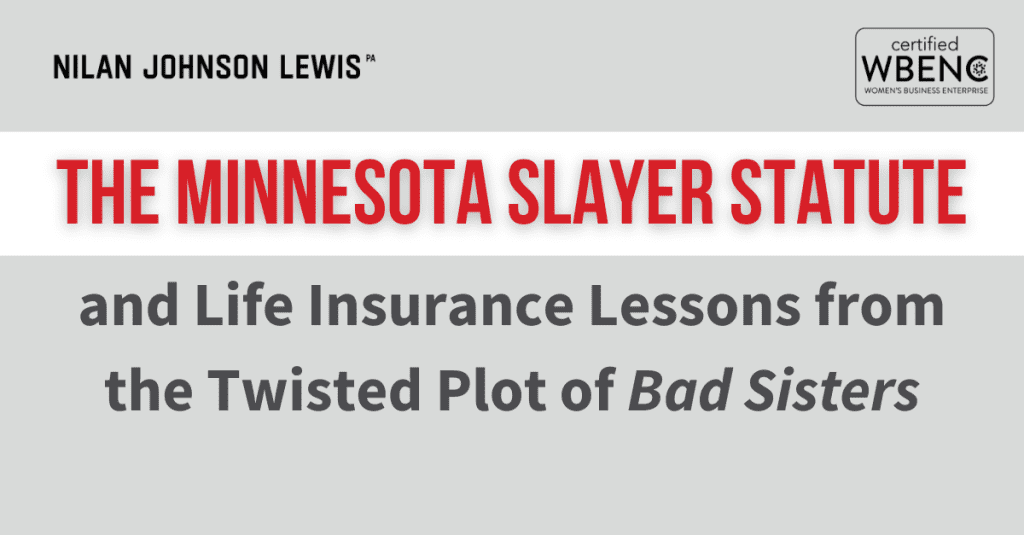
Posted April 21st, 2023 in Top Stories, Legal Insights
The Minnesota Slayer Statute and Life Insurance Lessons from the Twisted Plot of Bad Sisters
Like many television shows that involve some kind of legal issue, the Apple TV+ dramedy, Bad Sisters, has a plot point that is inconsistent with most U.S. state laws.
The show revolves around the death of John Paul “JP” Williams, an objectively horrible man who subjects his meek wife, Grace, to constant emotional and physical abuse. Grace’s four fiercely devoted sisters will do anything to free Grace from her terrible marriage, and when JP dies under mysterious circumstances, his death ruled an accident, viewers wonder if the sisters are at fault.
Enter the insurance agents: a bumbling pair of half-brothers who own a small insurance agency on the verge of bankruptcy. They set out to prove that Grace’s sisters murdered JP and that Grace knew or was involved, so they can avoid paying the life insurance benefits to Grace, the designated beneficiary.
The show may be entertaining, with compelling characters, but its plot diverges from most U.S. states’ laws. Even if the insurance brothers were able to show that Grace’s sisters killed JP, with her knowledge, they would not be off the hook for paying the life insurance benefits entirely. Instead, the benefits would be paid to other eligible beneficiaries, or to JP’s estate.
Most states, including Minnesota, have a “Slayer Statute,” see, e.g., Minn. Stat. § 542.2-803, designed to prevent a person from benefiting from the death of someone they have intentionally killed. These statutes apply to any person convicted of murder or manslaughter in the first or second degree. If the “slayer” is named as the beneficiary of a decedent’s life insurance policy, they will be automatically disqualified from receiving the benefits. It’s important to note that these statutes only apply to intentional killings only, not accidental deaths or deaths that occur as the result of self-defense..
In some cases, a court may take the preemptive step of disqualifying a beneficiary before the criminal trial has taken place. This is to prevent the slayer from using the life insurance benefits for their defense, to flee, or to obstruct justice. The court may even appoint a temporary administrator to manage the assets until the conclusion of the trial.
These statutes also apply to indirect beneficiaries, such as a person who is to receive property from someone who received it from the decedent. In such cases, the court will revoke the indirect beneficiary’s rights as well.
If the beneficiary is acquitted of the charges, they will be reinstated as a beneficiary and will be eligible to receive the benefits. However, if the beneficiary is convicted, the court will revoke their rights as a beneficiary and distribute the assets to other eligible beneficiaries.
Bad Sisters is a gripping show with a plotline that keeps you guessing to the end. But if ever adapted to take place in Minnesota, or most other US states, the script would need some rework to be legally accurate.